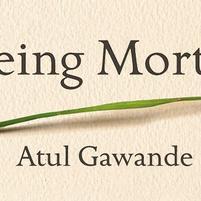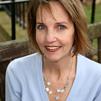If, like me, you are a veteran of several book clubs, you will know two things:
1. The best books to discuss are the ones that provoke heated disagreement and
2. The best book groups are the ones where people come from different walks of life.
And so I was not disappointed when a group of inter-disciplinary scholars here at the Oxford Institute of Population Ageing sat down to discuss Atul Gawande's Being Mortal: Illness, Medicine and What Matters in the End.
For those who've not read Gawande's best-seller, Being Mortal is a book about how people age - and die - in 21st century America. Gawande comes to this topic as a surgeon who treats people with terminal illness, a journalist chronicling the nature of elderly care in the United States and some who had helped to help manage his father's end-of life care. (You can read his impressive and multi-faceted bio here. Among other things, he delivered BBC Radio 4's prestigious Reith Lectures on the future of medicine in 2014 here in the UK.)
What surprised me most about our discussion was that none of us could agree on what this book was really about.
I thought it was a book about what it's like to grow old in America right now, in other words, a book about ageing. Another colleague insisted that it wasn't about ageing at all - if that refers to the personal and societal process of growing older - but, instead, about death and dying, which means it is about the end of life.
Someone else thought the book was really about medicine - what it gets wrong and what it gets right in its approach to dying, while someone else suggested that it was about the cultural shift required to change the way we deal with ageing populations that extends far beyond the confines of medicine. Or was it really about wellness at any age?
This rich debate was important, I thought, because how you interpret a book's core message is linked crucially to who you think it's audience is and, consequently, what the relevant "take home" point is.
If, like me, you read this book as a piece of journalism about what it's like to grow old in America today, then the book is mostly aimed at an educated public like myself who have older relatives confronting their own mortality. Upon reading this book, you will wonder first and foremost if the residential care home in which you have placed or plan to place your ageing parent is enabling them to live with dignity and autonomy, even if that entails accepting a higher degree of risk than you might otherwise be comfortable tolerating.
If you believe that the believe that this book is primarily about death, you will want to re-imagine the sorts of conversations you plan to have with people of any age who are facing a certain death. You'll wonder whether you're avoiding the "hard conversations". Gawande is an advocate for those conversations – and he shows how difficult they can be - that can help patients identify the proper course of treatment based on the trade-offs they are willing to endure.
If you believe that the book is medicine, then the audience are the medical schools around the world and the doctors they train, who seem hell-bent on prolonging life at all costs, even when that may be sacrificing quality of life. One of the most useful sections of the book, we all agreed, is where Gawande distinguishes between the"paternalistic," the "informative" and the " interpretive" doctor archetypes he learned about in medical school. He points out how very poorly prepared today's doctors are for the third model, even though it is the one that is potentially most useful for fostering the kind of joint decision-making by doctor and patient that is widely seen as the ideal approach.
Finally, if you believe it’s about engendering a cultural change in how we approach care for the elderly - one that is centered more around notions of wellness than medicine per se - then you want to think about the elaborate system of institutional care that has cropped up in the last century in the U.S. and the regulatory and policy responses needed to scale up some of the more promising housing and healthcare solutions Gawande champions throughout the book.
As members of an academic institute that studies how we understand and respond to ageing as a global problem, many of us here at OIPA were also left contemplating how to study some of the ideas put forth in this book in a more comparative perspective, i.e.,: What does this process look like in other developed countries, like the UK? Are we less innovative the Americans in generating new ideas for how we treat the elderly or does socialized medicine put an inherent cap on what you can do for this segment of the population? What about developing countries? One colleague noted that there is a very lively debate in Sub-Saharan Africa about how to implement long-term care systems without undulyWesternizing them?
We'd also need a fuller picture of the evidence to assess some of Gawande's claims. For instance, what about people who have predominantly cognitive problems rather than physical ailments as they age? What sorts of conversations ought we to be having with them? Do we know enough about the financial costs and well-being benefits of hospice care - one of Gawande's pet causes - to shift end-of-life care more decidedly in that direction? Is that politically viable?
The longer this conversation went on, the more I realised that we could have carried on discussing this book for several more hours. To my mind, that's the hallmark of a good book club. To this end, if you've read Gawande's book, please jump into the comments section with your own take on this book's core message, audience and implications. What did it leave out? And by all means, please disagree...
About the Author
Delia Lloyd is a Visiting Fellow at the Oxford Institute of Population Ageing. A seasoned writer and editor, she worked for a decade in radio, print and online journalism. Her reporting and commentary have been featured on outlets including The New York Times, The Washington Post, The Guardian and The BBC World Service.
Comments Welcome
We welcome your comments on this or any of the Institute's blog posts. Please feel free to email comments to be posted on your behalf to administrator@ageing.ox.ac.uk or use the Disqus facility linked below.
Opinions of the blogger is their own and not endorsed by the Institute
Comments Welcome: We welcome your comments on this or any of the Institute's blog posts. Please feel free to email comments to be posted on your behalf to administrator@ageing.ox.ac.uk or use the Disqus facility linked below.













